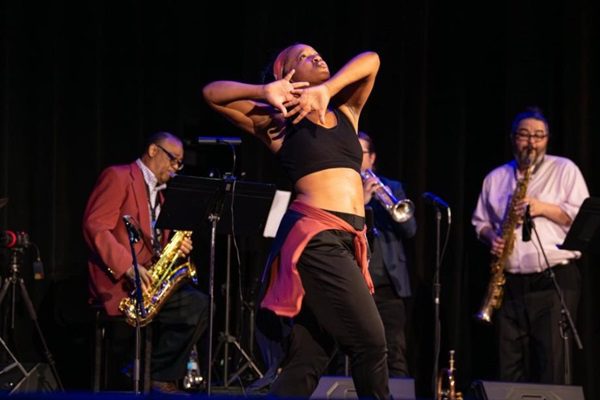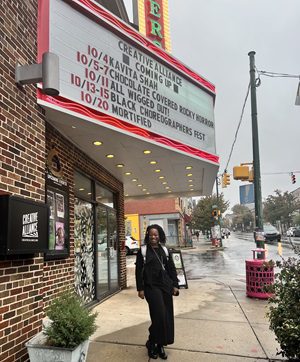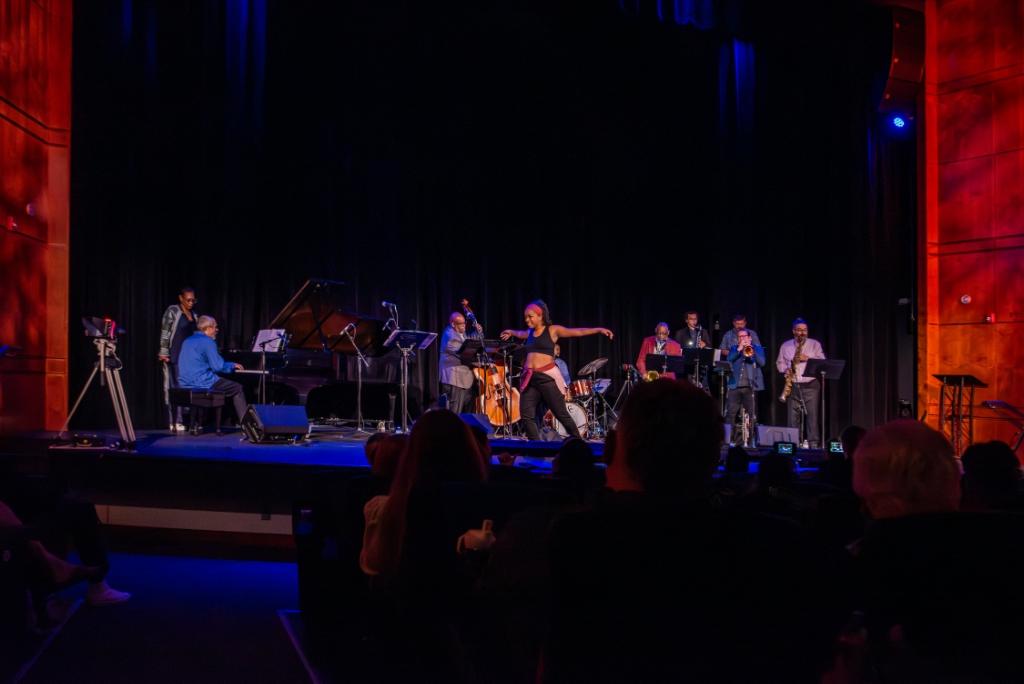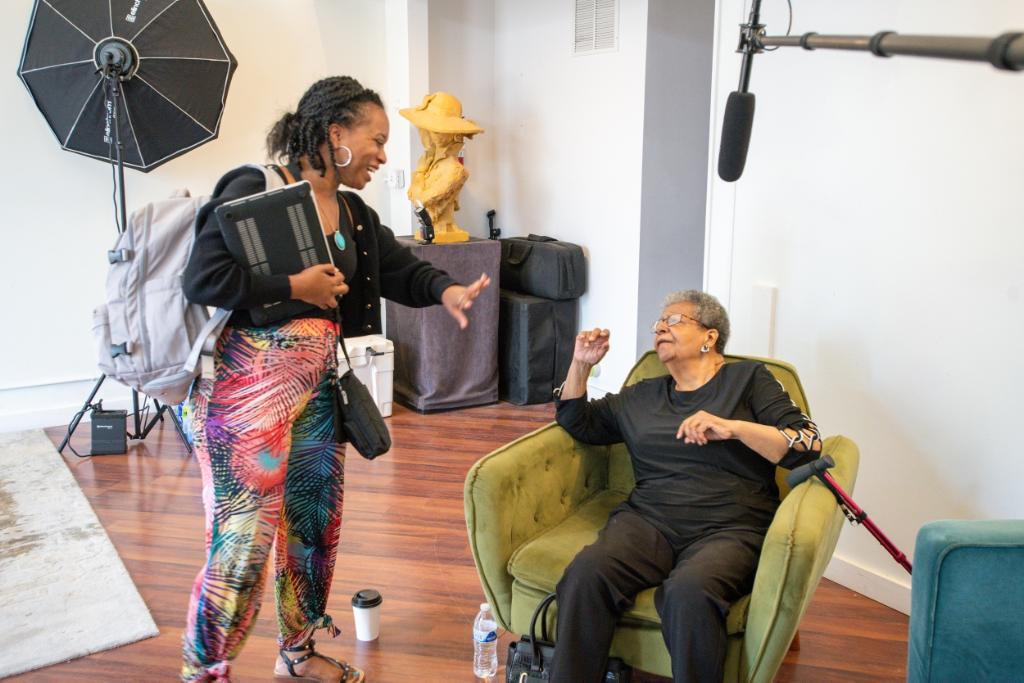Professor Creates for Baltimore Black Choreographers Festival

Assistant Professor of Dance Ashley Tate recently presented her work, ”When A Black Man Walks,” at the 3rd Annual Baltimore Black Choreographers Festival in Baltimore, Maryland. Held October 13-15, the festival was a weekend of performances, panels, and workshops designed to highlight Black choreographers. The Black Choreographers Festival also “represents the Baltimore community through unique works that are choreographed by dancers who mirror what many Baltimore residents look like: people of color. Through multi-genre master classes led by established Black educators, a networking event, and two evening performances, the Black Choreographers Festival will uplift and support the Baltimore community.”
 Tate’s work, ”When A Black Man Walks,” is a solo that was performed by St. Louis-based dancer Jordan McDaniel to a spoken word piece by Neiel Israel. This solo “takes on the challenges of living as a Black man in the United States of America,” Tate wrote in an artist statement. The piece was originally created for a concert entitled Unseen, she said. “The pieces presented in Unseen were designed to foster conversations around our country’s often marginalized and underserved populations. This concert used the vehicle of dance to shed light on the ongoing struggle of groups of people whose lives have been negatively affected by discrimination, conflict, neglect, or corruption.”
Tate’s work, ”When A Black Man Walks,” is a solo that was performed by St. Louis-based dancer Jordan McDaniel to a spoken word piece by Neiel Israel. This solo “takes on the challenges of living as a Black man in the United States of America,” Tate wrote in an artist statement. The piece was originally created for a concert entitled Unseen, she said. “The pieces presented in Unseen were designed to foster conversations around our country’s often marginalized and underserved populations. This concert used the vehicle of dance to shed light on the ongoing struggle of groups of people whose lives have been negatively affected by discrimination, conflict, neglect, or corruption.”
Earlier this fall, Professor Tate was also invited to participate in a No Tears Project concert honoring the Little Rock Nine in Little Rock, Arkansas, and to present at the National Dance Educators Organization (NDEO) conference in Denver, Colorado.

Professor Tate was featured in the No Tears Project ensemble along with other musicians, spoken word artists, and choreographers. The concert was a part of “Little Rock Nine Day,” which commemorates and honors the 66th anniversary of the Little Rock Nine’s desegregation of Central High School. Tate reprised her piece choreographed last spring for the No Tears Project in St. Louis. In an especially meaningful moment, she also met Elizabeth Eckford, who is an American Civil Rights activist and one of the Little Rock Nine.

Tate’s presentation for the NDEO conference was entitled: “Creativity in Community: Dance as a Unifying Art Form.” Within the workshop, she discussed her background and research, conducted a movement improvisation activity for the attendees, and provided tips and ideas for those who were interested in presenting work or facilitating classroom activities that foster social justice commentary.